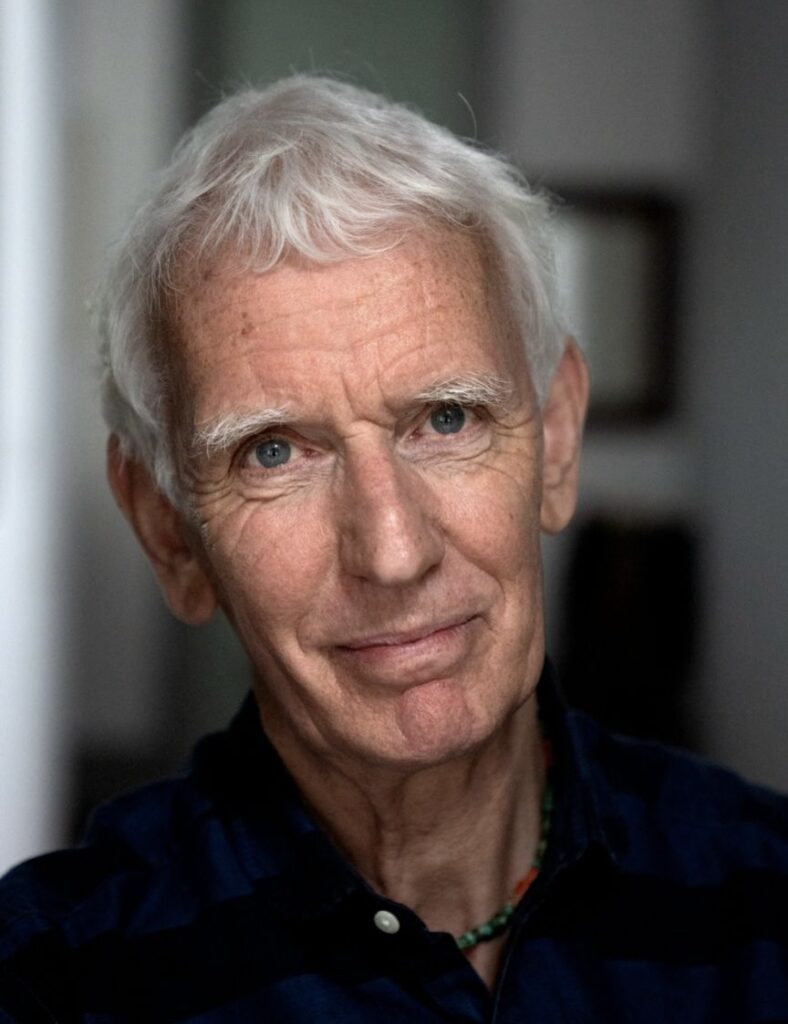Steve Crawshaw
نوشته شده توسط Admin در 10 فوریه 25استیو کراشاو

استیو کراشاو نویسنده کتاب محاکمه قدرتمندان: جرایم جنگی و نبرد برای عدالت (بریج استریت پرس، 2025) است. او بیش از سی سال است که در زمینه حقوق بشر و مسائل عدالت نوشته و فعالیت کرده است.
کتابهای پیشین او شامل وداع با اتحاد جماهیر شوروی (1992)، وطن آسانتر: آلمان و قرن بیست و یکم (2004)، اعمال کوچک مقاومت (با جان جکسون، مقدمهای از واسیلاف هاول، 2010) و روح خیابانی: قدرت اعتراض و شیطنت (مقدمهای از آی ویوی، 2017) است.
او کار خود را در سال 1986 در ایندیپندنت آغاز کرد، جایی که نقشهای مختلفی ایفا کرد، از جمله سردبیر روسیه و اروپای شرقی در دوران انقلابهای شرق اروپا و جنگهای بالکان، سپس رئیس دفتر آلمان و سردبیر ارشد امور خارجی. در سال 2002، او به هیومن رایتس واچ پیوست و به عنوان مدیر بریتانیا و سپس مدیر روابط عمومی سازمان ملل در نیویورک مشغول به کار شد. در سال 2010، او به عفو بینالملل پیوست و به عنوان مدیر روابط عمومی بینالمللی و مدیر دفتر دبیرکل فعالیت کرد. در سال 2018، او به عنوان مدیر سیاست و روابط عمومی در آزادی از شکنجه منصوب شد و تا سال 2022 به عنوان مدیر سیاست و روابط عمومی فعالیت کرد. در سال 2021، استیو کراشاو رئیس هیئت امنای RAID شد.
در طول دوران حرفهای خود، استیو کراشاو در زمینه عدالت بینالمللی نوشته و فعالیت کرده است، از جمله ملاقات با اسلوبودان میلوسویچ و دیگر جنایتکاران جنگی، همچنین نوشتن درباره دادگاههای جنایت جنگی یوگسلاوی و دیگر دادگاههای موقتی، صلاحیت جهانی و دیوان بینالمللی کیفری.
Steve Crawshaw is the author of Prosecuting the Powerful: War Crimes and the Battle for Justice (The Bridge Street Press, 2025). He has spent more than thirty years writing and working on human rights and justice issues.
His previous books include Goodbye to the USSR (1992), Easier Fatherland: Germany and the Twenty-First Century (2004), Small Acts of Resistance (with John Jackson, foreword by Václav Havel, 2010), and Street Spirit: The Power of Protest and Mischief (foreword by Ai Weiwei, 2017).
He began his career at The Independent in 1986, where he held various roles, including Russia and Eastern Europe Editor during the East European revolutions and Balkan wars, then Germany Bureau Chief and Chief Foreign Correspondent.
In 2002, he joined Human Rights Watch as UK Director and later became the UN Advocacy Director in New York. In 2010, he joined Amnesty International as International Advocacy Director and Director of the Office of the Secretary General.
In 2021, Steve Crawshaw became the Chair of Trustees at RAID and served as the Policy and Advocacy Director at Freedom from Torture until 2022.
Throughout his career, Steve Crawshaw has written and advocated on international justice issues, including meetings with Slobodan Milosevic and other war criminals, as well as writing on the Yugoslavia and other ad hoc war crimes tribunals, universal jurisdiction, and the International Criminal Court.
ABSTRACT
در حین نوشتن کتاب اخیرش “محاکمه قدرتمندان: جنایات جنگی و نبرد برای عدالت” (فوریه ۲۰۲۵)، استیو زمانی را در اوکراین، اسرائیل/فلسطین و لاهه گذراند و چند روز پس از درخواست صدور حکم برای بنیامین نتانیاهو و یوآو گالانت در سال ۲۰۲۴، برای ملاقات با دادستان کل دیوان بینالمللی کیفری، کریم خان، دعوت شد.
کتاب استیو به کسانی که به هر نحوی عدالت را ممکن کردهاند، ادای احترام میکند. در سخنرانی خود، او به چالشها و فرصتها پرداخته و از جمله به استانداردهای دوگانهای که به نظر میرسد سالها عدالت بینالمللی را آزار دادهاند، اشاره خواهد کرد، اما اکنون این استانداردها خود در حال چالش هستند، هم توسط جامعه مدنی و هم دادگاههای مستقل.
سقوط رژیم اسد در سوریه امکانات جدیدی برای عدالت منطقهای به روشهای غیرمنتظره ایجاد کرده است — که بر اساس کار شجاعانه مدافعان حقوق بشر سوریه در سالهای اخیر بنا شده است.
During the writing of his most recent book, Prosecuting the Powerful: War Crimes and the Battle for Justice (February 2025),he spent time in Ukraine, Israel/Palestine and The Hague, and was invited to meet with ICC chief prosecutor Karim Khan a few days after the requested indictments of Benjamin Netanyahu and Yoav Gallant in 2024.
Steve’s book pays tribute to those who have made justice possible against all odds. In his presentation, he will address the challenges and the opportunities, including the double standards which have seemed to bedevil international justice for many years but which are now themselves being challenged, by civil society and independent courts alike.
The fall of the Assad regime in Syria has opened up the possibilities of regional justice in unexpected ways — building on the courageous work of Syrian human rights defenders in recent years